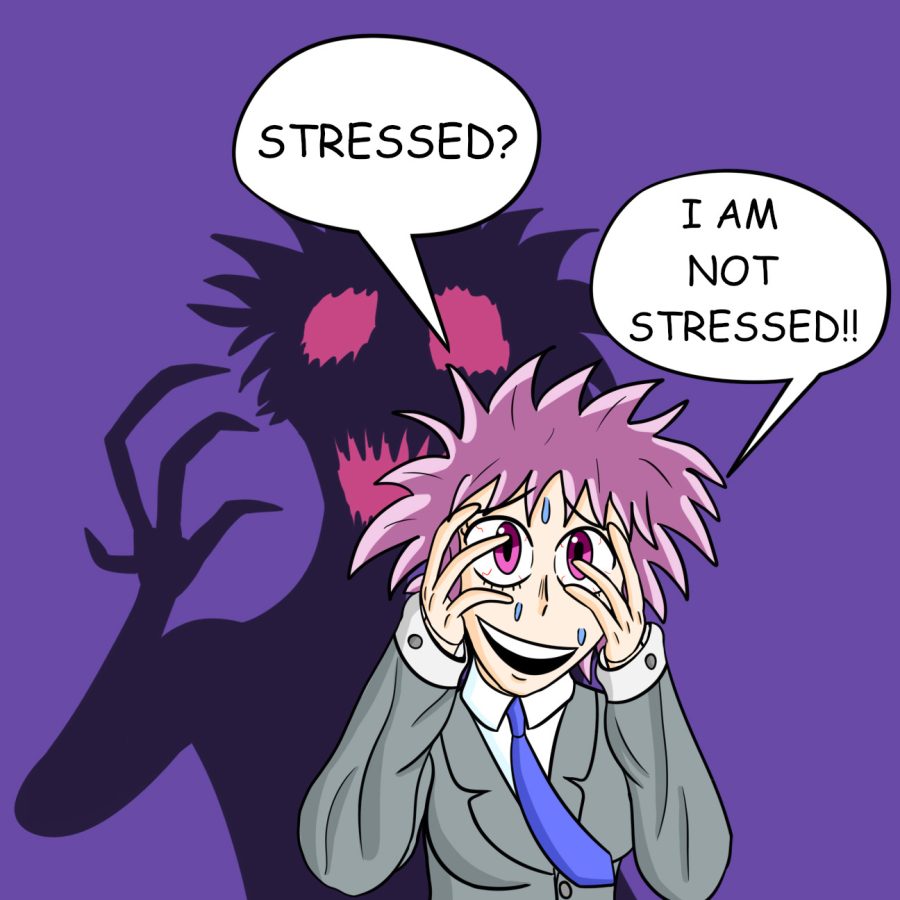Panic. Exams are Here.
Psychology student Mariana guides us though exam stress.
The exam season can feel overwhelming – especially if it’s your first time taking a standardised assessment. As a high school student, I have to find ways to deal with not just test, but school anxiety in general, so here are some science-based tips that might work to make you a bit more confident in your abilities!
A lot of our anxiety is caused not by real threats, but rather possibilities. “What if I fail this exam?” What if I will forget something important?” “What if…” Our brains are trying to predict anything and everything that could go wrong, inducing extreme stress on our bodies. Stress manifests itself most often in sped-up heartbeat, uneven breathing, tension in the muscles. In some cases several of these might combine, resulting in something called a panic attack – a state of extreme stress for the body, when, you guessed it, you’re panicking. These may vary in severity, but usually pass after relatively short periods of time under the condition that you are in a safe, secure place. Can you imagine – all of these consequences of stress while there is no actual threat in sight!
So what do you do? There is a lot actual psychological theory behind it: mostly rooted in being mindful and teaching our brains to think what we need them to. While all of that is great, I’m fairly certain that you’ve come here for some practical advice. The following methods have a short explanation for the mechanism of their work, so feel free to try what works for you and what doesn’t.
One of the most effective ways of calming down I can think of is breaking down whatever’s worrying you into smaller parts. Take large amounts of homework, for example. You might be feeling overwhelmed with all the assignments you have to finish up all while writing a huge essay, combined with exam preparation! Must be tough. First, try to write down everything you need to do. While that list might seem enormous, it’s crucial not to get scared away. You want to break down each task into something smaller and manageable. For example, for your maths exam you might outline the specific topics you need to revise and go from there. Sometimes, however, even that might seem too much – and that’s okay. In those scenarios, break down even the simplest everyday tasks. Tell yourself to slowly get up from your bed first, then get a glass of water to stay hydrated – or a snack to boost your energy – take out your textbooks, sit at the table, etc. This method is mostly what helped me personally push through several stress-filled periods. When you can’t control everything, narrow down your scope, and some things will suddenly become manageable.
Another one I can recommend is not to make your studies feel dreadful. While it might seem impossible, try and don’t treat them as your punishment – or you will actually feel that way, and will be a lot less motivated to actually start. Just try and keep a neutral attitude: some things that might help with this is finding study methods that work for you and make you feel comfortable. Maybe you work better when lying in bed and typing your essays on your device – great! You might listen to background music to keep yourself from getting distracted (which actually works well, by the way – if you can’t stay focused on one thing only, try adding extra stimuli for your brain), or want to take regular breaks to “reset” your mind. Try out various methods, and remember that there is no one correct way to study. Finding peace with something like schoolwork helps immensely with feeling like you’re in control over your anxiety.
The last one lies in “grounding” yourself. This might include all of the anti-stress exercises you might’ve seen on the internet, like taking deep breaths, counting objects you can touch, etc. You once again can use whatever works for you, the only requirement is that it should be shifting your focus to your physical senses. Your brain then has to divide its resources in order to both be anxious about the upcoming test and analyse the texture of a water bottle you’re holding at the moment. Simply put, you reduce the amount of energy available for stress. This is something that can be done rather quickly, even during the exam itself: just lift your head, look around (just not at your classmates’ work!), listen to the birds chirping, calm down a little and get back to your task.
I hope some of the advice I’ve provided works to soothe your worries a little! While some of it might seem basic and overused, I genuinely recommend trying at least one. Who knows, maybe it’ll inspire you to create your own methods. If that’s the case, we encourage you to submit it to Quirky Quibbler, and share your advice to help others!
And, at the end of the day, remember: any grade you get now doesn’t define your future by any means. You will forget about a failed test a little more than a year from now, I guarantee. The points are just numbers on paper, and they don’t define your efforts or you as a person. What’s more important is the experience you get from this, and what you will carry with you into the undoubtedly bright future.
Good luck!







